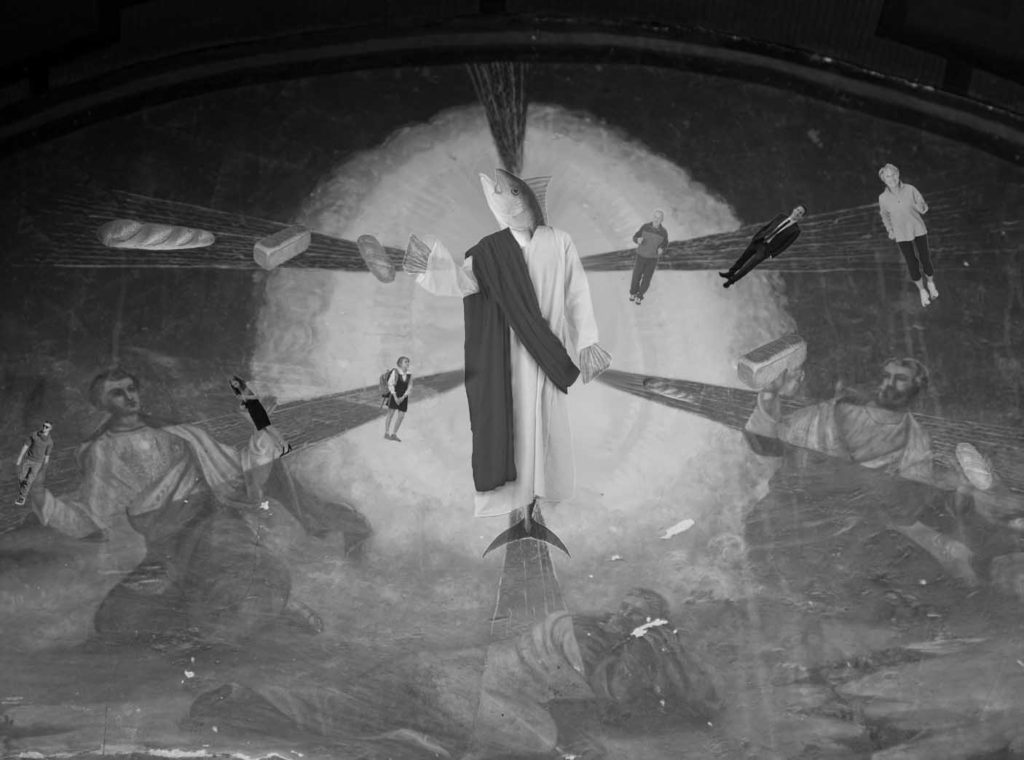
Photo by: Jacob Aguirre
Revelations were made earlier this week when scholars found a new reference point for the Old Testament. This awakening was recently discovered by religious scholars when they stumbled upon a footnote in Genesis, which led to an index, which led to an appendix, which led to a table of contents, which led to a glossary defining the term “flood” as “the greatest reward for fish.”
This definition is only used in one text, which had been kept under wraps by the Vatican in “Bible: The Fish-dom Menace.” The text describes the true intention for the great deluge, explaining the phenomenon in a brief yet informative passage. The text states that fish are revered by God as the purest of Earth’s inhabitants. “The fish bears witness to no sin, is a dutiful servant to man, and listens when I say, ‘Don’t eat the fruit,’” the text reads.
“And so I call upon a great rain for forty days and forty nights to broaden the bounty of their realm,” the text continues. The piece continues in an affectionate diatribe of God’s adoration for fish, their docility, and general good-naturedness, even going so far as to suggest fish as a symbol for His worship. Very quickly, however, the piece divulges into a stream-of-consciousness style of narration, expressing the imminent conflict the flood would have with another faction of God’s creation: land dwellers.
“You ever get so psyched for some plans before realizing you didn’t think of something kinda important?” the text reads. “Right when the drizzling started, I realized I may have goofed. Land dwellers have a tendency to drown underwater, so I had to come up with something quick.
“So I found this guy with a beard like mine who seemed cool and willing to work for free, and I gave unto him these instructions: ‘There’s gonna be a floody-floody, when it starts to rain it will get really muddy-muddy, get those animals on the arky-arky’. It was all kind of short notice, so I can’t blame him for forgetting the dinosaurs.” Here the passage ends, instructing the reader to refer back to the Book of Genesis for the execution of this plan.
This addition to Genesis has been met with many criticisms. Some Jewish scholars argue that there are plot holes in this narrative: they say that humans were the most important of Earth’s creatures, that the flood was God’s way of cleansing the Earth of its sins, and that “if the traditional story isn’t true, then what’s the point of rainbows?”
Many Christians also dismiss the recent findings, saying the Old Testament is “all pretty squirrely” and that “the New Testament is where it’s at.” One Christian promised that “‘Bible: The Fish-dom Menace’ will not be found in pews near you.”
Written by: Paola Diaz and Brandon Moguel
Brandon Mougel is an MQ Alumni











